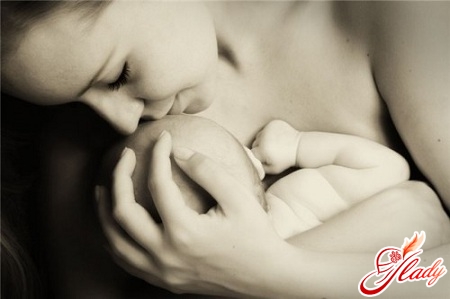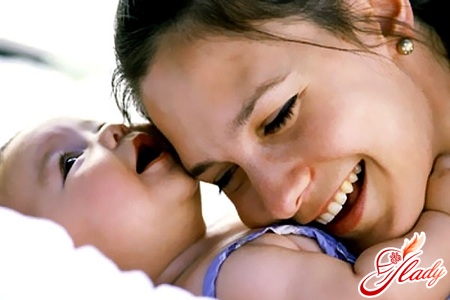 The Psychology of Maternal Instinct, orpsychology of motherhood is a relatively new direction in psychology, which has already managed to absorb various knowledge and become interesting for most women. How does a mother emerge in a woman? At what point does the awareness of readiness for motherhood come? You will find answers to these and other questions in our article on maternal instinct.
The Psychology of Maternal Instinct, orpsychology of motherhood is a relatively new direction in psychology, which has already managed to absorb various knowledge and become interesting for most women. How does a mother emerge in a woman? At what point does the awareness of readiness for motherhood come? You will find answers to these and other questions in our article on maternal instinct.
What is the instinct of motherhood
We are born women and we become mothers.Maternal instinct is not an instinct in its true biological meaning. It is a woman's behavior that includes the satisfaction of the following maternal needs: the need to interact with the child, the need for care and protection, and the need for maternal feelings. The need to interact with the child is the very first, and it is on it that the others are based. When this need is satisfied, a woman experiences pleasure and other pleasant experiences. They can be obtained both in direct communication with the child and in the process of care, feeding, upbringing, etc. ... The need for care and protection is the desire to feed, look after and protect your child from external threats and the dangerous consequences of his own activity. Usually, a woman learns such things from her mother or by observing other mothers caring for their children. However, some things, such as breastfeeding, cannot be learned in advance, so such actions are usually innate. The need for motherhood is the most complex. The woman thinks and analyzes her states and experiences. This is a special, so-called “maternal feeling”. It arises thanks to the woman’s thoughts about the future child, his/her image, family and cultural models of motherhood and her own experience. All these needs, as well as the maternal instinct in general, a woman can satisfy only through the birth of a child. As you probably already understood, a child for every mother is not just a child, but a completely special phenomenon. He/she is capable of evoking the most tender feelings just by his/her presence in a woman’s field of vision. How does this happen?
- The appearance and physical characteristics of the baby.It's no secret that babies have a special smell - some women react to it very sensitively with a burst of maternal instinct. And of course, few can resist plump little legs and arms, big wide-open eyes and soft skin!
- Behavioral features.Children behave in a very special way - they are slow, awkward, unadapted to independent life, and their movements are poorly coordinated. But it is precisely all these oddities that largely excite the maternal instinct in women, especially the need for care.
- Results of behavior and activity of children. These include groaning, sounds of pleasure, sniffing, drooling, special touches, sounds, facial expressions, violent and immediate reactions, playfulness, crookedly assembled pyramids, smeared on a sheet of paint and other-other results of child life. If this were the way the adult behaved, we would be angry; However, children's behavior causes us delight and emotion.

On the emergence of the maternal instinct
Maternal instinct and its manifestationsare unique and constant for each woman, but they change for different children. By the time a child is born, the mother has a complex consisting of knowledge and skills in caring for children, experiences and relationships associated with them, the need for them, their value and meaning for the woman. All this is designated by the concept of "maternal sphere". It is often called maternal instinct in everyday life. In its formation, the maternal sphere goes through a number of stages:
Then comes childbirth, which many women experienceare afraid. The most optimal attitude to childbirth is described by the formula “childbirth is difficult and creative work”. After the baby is born, the woman develops her own emotional attitude towards caring for the child. It is highly dependent on tactile contact with the baby and includes the first reactions of anxiety and fear for the child, getting used to him and his characteristics, the appearance of pleasure from touching him and his transition to “affectionate caution”. Then confidence in movements appears. The child develops an attachment to the mother, who also activates her maternal instinct. For example, he usually rejoices at her arrival more than at other people. The mother shares with the child the joy of his discoveries of the world and activity in it. Gradually, the woman develops a style of maternal attitude towards the child. As a rule, it can be anxious, adequate (attitude towards the child as a full-fledged person, sympathy and attunement to him), detached, unstable or emotionally cold. If the mother has an adequate attitude, her interest in her child becomes more and more intense, she spends a lot of time with him, especially playing.
Readiness for motherhood
Unfortunately, not every woman is ready to becomemother. The reason why the maternal instinct may disappear is the lack of desire to become a mother. However, it is not the only one. The desire to have a baby is certainly important for the feeling of readiness for motherhood, but it is not enough. The birth of a child is a very serious event, and it should be treated much more responsibly than entering college or buying a car. However, do not forget that some things appear after the birth of the child, and their lack is more than compensated for by love for the baby. So, what other qualities are considered necessary for the expectant mother?
- Personal maturity. It includes feeling like a woman, the ability to make important decisions, the ability to make choices, taking responsibility for one's actions, the ability to establish close and warm relations, independence, the ability to sympathize, work together, the ability to live the present, creative abilities, interest in developing oneself and other people, the ability to enjoy life.
- An adequate understanding of the roles of mother and father infamily, about what they should do, the right attitudes towards upbringing and contact with the child. It is very important to have the right motives for parenthood. For example, the desire to have a child in order to keep your husband - this is not constructive, but the appearance of a baby as a continuation of your love with your husband - this is closer to the truth.
- Correct attitude to the child. Psychologists describe 3 types of the child's value: emotional (positive experiences with the mother during communication with the child), heightened emotional (euphoria or excessive concentration on the child of all attachment in the absence of other people's lives in the mother's life), replacing the child's independent value with others (the child attaches mother status, relieves the fear of loneliness in the future, etc. ...).
- Maternal competence. This sensitivity to the child, the ability to understand the state of children, the flexibility and ability to adjust to the individual rhythm of the child, the availability of knowledge about the characteristics of childhood, the presence of some skills of upbringing.
- Formation of the maternal sphere. In order to be ready to become a mother, a woman must go through all the stages of becoming a mother's sphere, as a result of which she has an understanding of the value of the child, a special warm attitude to him, the need for it, and also the skills of caring for the baby
We recommend reading:









